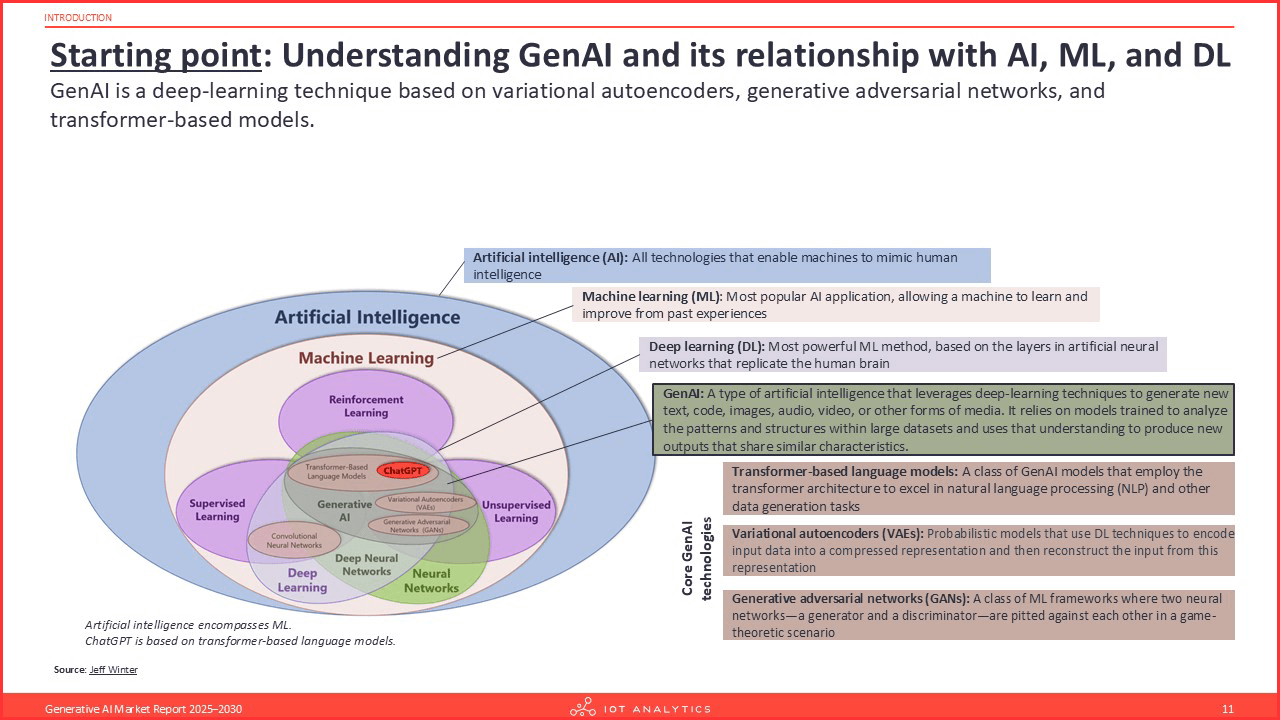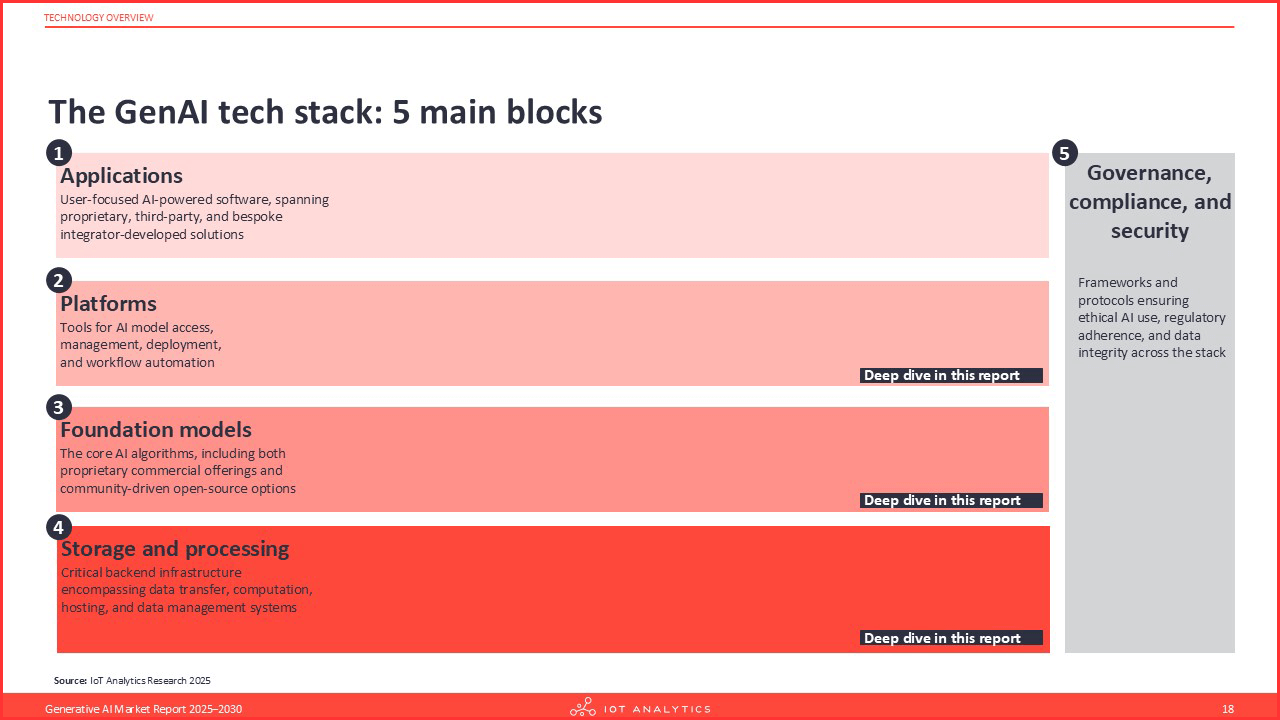Questions answered
- What is GenAI, and what are its technological components?
- Which GenAI use cases and applications are being prioritized by enterprises right now?
- What is the current market size for GenAI, and what are the market shares of key players?
- Who is leading the market for GenAI models and platforms?
- Which companies offer AI accelerators beyond NVIDIA?
- Which consulting and professional services companies are selling the most GenAI projects?
- How do the leading GenAI models compare?
- What are some of the important implementation considerations for GenAI?
- What are the current and next trends and challenges around GenAI?
Companies mentioned
AMD AWS Accenture Alibaba Anthropic Baidu Capgemini Cerebra Cognizant Cohere Google Groq Huawe Hugging Face IBM Infosys Microsoft Nvidia OpenAI
About the report
The Generative AI Market Report 2025-2030 is part of IoT Analytics’ ongoing coverage of enterprise technology markets. The information presented in this report is based on the results of secondary research and qualitative research, i.e., interviews with experts with experts in the field. The main purpose of this document is to help our readers understand the current Generative AI (GenAI) landscape and potential use cases.

What is Generative AI?
GenAI is a deep-learning technique based on variational autoencoders, generative adversarial networks, and transformer-based models.
What is a Data Center GPU?
The market segment for data center GPUs refers to specialized graphics processing units designed to handle the extensive computational demands of modern data centers. These GPUs are engineered to accelerate a variety of complex workloads, including high-performance computing, DL, ML, and large-scale graphics processing tasks. The market does not include spending on CPUs, consumer-grade GPUs, or application-specific integrated circuits (ASICs). It includes GPU systems such as specialized GPU server racks. The market only includes external spending but not spending on developing own chips e.g., Google’s TPUs or AWS’ Trainium or Inferentium.
What are foundational models and model management platforms?
This market segment includes both foundational models and model management platforms.
- Foundational models are large-scale, pre-trained models that can be adapted to a wide variety of tasks without the need for training fromscratch, such as language processing, image recognition, and decision-making algorithms.
- Model management platforms are software platforms that enable users to deploy, fine-tune, and call GenAI models. Model managementplatforms allow the use of different GenAI models and are not limited to one single model vendor.The market does not include chatbots and applications such as ChatGPT.
What are Gen AI services?
GenAI services represent a specialized market segment dedicated to consulting, integration, and implementation support for organizations aiming to integrate GenAI capabilities. These services are tailored to help businesses conceptualize, develop, and execute strategies that leverage GenAI technologies for enhanced innovation, efficiency, and value creation. Services includes consulting, integration, and managed services.
Five building blocks make up the Generative AI stack
 The GenAI tech stack includes 5 building blocks:
The GenAI tech stack includes 5 building blocks:
- Applications (e.g., AI-powered software solutions)
- Platform tools for deployment and management
- Foundation models like OpenAI’s GPT 4
- Critical backend infrastructure such as data processing and GPUs
- Governance frameworks for security and compliance
The report includes a structured repository of 530 generative AI projects*
Database structure
| Column name | Description |
|---|
| Company | Name of the company that implemented the project. |
| Industry (ISIC classification) | Industry classification (ISIC code) of the customer |
| Project description | A brief description of the project |
| Country | Country that the project took place in |
| Region | Region that the project took place in |
| Vendor | Name of the vendor that has published the case study/project on their website |
| Year | Year that the project was implemented |
| Link | Unique identifier of each case study/project |
| Key department and activities that are improved by each project | Each project is grouped into one or more of the follogin departments: Sales, Marketing, Operations/mfg, Maintenance/field service, Finance and account, Human resources, IT/technology, Research and development, Customer service/support, Legal and compliance, Procurement, Logistics and supply chain, Corporate strategy/business development, Facility management. A project can touch mulitple departments. Each department is broken down into key activities. |
The database is suited for
- AI strategy/business case development
- Sector scan+Customer/vendor selection
- Competitive analysis
- Go-to-market/market entry strategy
- And more
*As part of the team user license and enterprise premium license. The database is also sold separately.
Our insights are trusted by global industry leaders




